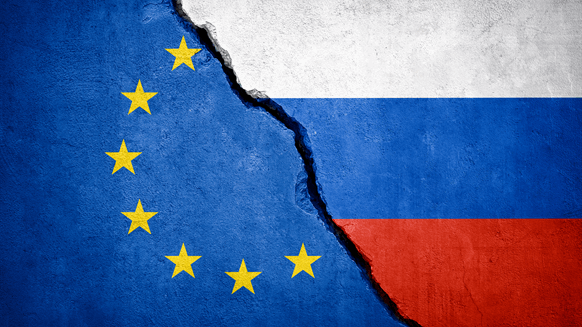Estonia, Latvia and Lithuania agreed Thursday to quicken the decoupling of their power infrastructure from Russia for integration with the Continental Europe Network (CEN), in a move prompted by Russia’s invasion of Ukraine.
Under a joint declaration by their prime ministers “the deadline for synchronization [with the CEN] is brought forward from the end of 2025, as initially established by political declarations in 2018 and 2019, to February 2025”, the European Commission said in a press statement Thursday.
The latest declaration signed by Estonia’s Kaja Kallas, Latvia’s Arturs Krisjanis Karins and Lithuania’s Ingrida Simonyte on Thursday cites risks from the Russia-Ukraine war. The Putin regime’s invasion launched February 2022 has “significantly deteriorated the energy security situation in the region and increased the risks of unplanned de-synchronization of the Baltic States’ electricity systems from IPS/UPS”, reads the text, referring to the grid system linking the three countries to Russia.
The three nations’ electricity supply systems are already connected with European partners Finland, Poland and Sweden. “For historical reasons, however, the Baltic States’ electricity grid is still operated in a synchronous mode with the Russian and Belarusian systems”, the European Commission statement noted. Estonia, Latvia and Lithuania were part of the Soviet Union.
Thursday’s declaration says disconnection from the Russian system and “achieving energy independence from Russia” are “tied to our security and continuous economic development”, adding “the synchronization of the Baltic States with the Continental European Network holds strategic importance not only for us but for the entire European Union”.
The three governments have agreed under the declaration to “redouble concerted efforts and full mobilization in ensuring political support for de-synchronization from IPS/UPS and achieving the synchronous operation of Baltic States’ electricity systems with the Continental European Network not later than by February 2025”, as stated in the text.
The synchronization is a priority project of the European Union and has received $1.3 billion (over EUR 1.2 billion) in funding from the Connecting Europe Facility for Energy, the European Commission statement said.
“The project will not only bring energy security in the region and complete the EU integration of the three Baltic States, but will also support the implementation of the Green Deal by ensuring secure, affordable and sustainable energy for the Eastern Baltic Sea region and the Union as a whole”, European Commissioner for Energy Kadri Simson commented. The Green Deal, adopted 2020 by the European Parliament, sets strategies for achieving a climate-neutral economy.
Following the invasion, the EU declared March 11, 2022 the phaseout of fossil fuels from its main traditional energy source Russia by 2027 and on May 18, 2022 launched the REPowerEU outlining measures toward that goal.
To contact the author, email jov.onsat@rigzone.com


